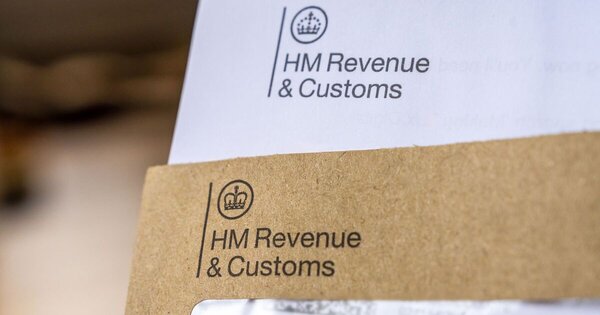Let’s Break This Down Together...
Earning money from YouTube isn’t just about views and subscribers it also means understanding your tax obligations. Whether it’s ad revenue, sponsorships, or merch sales, HMRC wants you to declare it.
In this guide, we’ll cover when you need to register as self-employed, how to track your income, what expenses you can claim, and how to complete your Self Assessment. We’ll also touch on National Insurance, VAT, and when to consider hiring an accountant.
By the end, you’ll know exactly what to report, what you can deduct, and how to keep more of your hard-earned income. Let’s dive in.
Understanding YouTube Income for UK Tax Purposes
If you’re making money from YouTube, HMRC wants their slice. All your revenue streams count as taxable income – this includes ad revenue (advertising revenue is a key component of YouTube earnings and must be declared to HMRC), sponsorships, affiliate links, merchandise sales, and Super Chats. To monetise your videos and access features like ads and Super Chat, you need to join the YouTube Partner Program.
Even if you’re just starting out (many YouTubers start their channels as a hobby), once you earn more than £1,000 from your channel in a tax year, you need to tell HMRC about it. This £1,000 threshold is known as the trading allowance, and income below this is tax free.
Remember that HMRC doesn’t view YouTube as just a hobby if you’re regularly creating content to make money. It’s a business activity, and most YouTubers are considered sole traders for tax purposes. When you start earning above the threshold, you need to register for self-assessment with HMRC to declare your earnings.
Our Pie tax app helps YouTubers automatically track income streams using creator-specific tax rules. Or if you’re just here to get to grips with it all, let’s break it down!
Registering as a Self-Employed YouTuber
Before you can start paying income tax on your YouTube earnings, you need to register as self-employed with HMRC. This is a key step in managing your YouTube business finances and staying on top of your tax obligations. As soon as your YouTube channel starts generating more than £1,000 in a tax year, you’re required to let HMRC know you’re running a business even if it’s a side hustle.
Registering is straightforward: you can do it online using your Government Gateway account, or by contacting HMRC directly. Once registered, you’ll receive a Unique Taxpayer Reference (UTR), which you’ll need for your Self Assessment tax return each year. Make sure to keep this number safe, as it’s essential for all your dealings with HMRC.
As a self-employed YouTuber, you’re responsible for paying your own income tax and national insurance contributions. Each year, you’ll need to complete a Self Assessment tax return, declaring all your income including money from your YouTube channel and claiming any allowable expenses. Registering promptly helps you avoid penalties and keeps your YouTube business running smoothly.

Tracking Your Earnings as a YouTuber
Keeping accurate records of your YouTube income is essential for tax compliance and making sure you pay the right amount of income tax. Start by regularly downloading your earnings reports from your Google AdSense account, which details your ad revenue from YouTube videos.
But don’t stop there many YouTubers have multiple income streams, such as sponsorships, merchandise sales, affiliate marketing, channel memberships, Super Chat, and YouTube Premium payouts. To make your Self Assessment tax return easier, use accounting software or a simple spreadsheet to log every payment you receive.
Save all your receipts, bank statements, and business records, so you can back up your income and expenses if HMRC ever asks. Accurate records also help you claim the right expenses and reduce your tax liability.
Remember, every revenue stream counts towards your total taxable income, so track everything from live streams to merchandise sales. Staying organised throughout the tax year means less stress when it’s time to submit your assessment tax return and ensures you’re paying tax only on your actual profits.
How to Report YouTube Earnings on Your Self Assessment
When filling out your Self Assessment, you’ll need to complete the self-employment section, not the “other income” box. This is crucial to get right.
For your business description, use something like “Content Creator” or “Digital Media Producer” rather than just “YouTuber” to accurately reflect your work.
You’ll need to report your total income from all sources, not just your YouTube income, in the turnover section. This includes everything from AdSense payments to brand deals and merchandise sales. Your personal allowance (the tax-free threshold) will determine how much of your income is taxed. Note that personal allowances can be reduced if your total income exceeds certain limits.
Keep a separate spreadsheet tracking different income sources throughout the year. This makes it much easier when tax time comes around. Make sure to keep all payment records from YouTube, brand partnerships, and other income sources. HMRC might ask to see these if they have questions.
You pay tax on your profit (your total income minus allowable expenses), not just your total income. All your YouTube earnings are taxed according to UK tax rules. Income within the basic rate band is taxed at 20%, and any income above that is taxed at the higher rate.

Claiming YouTube Expenses on Your Tax Return
The good news is you can reduce your tax bill by claiming expenses for legitimate business costs. This includes equipment like cameras, lighting, microphones, and other video production expenses. Software subscriptions for editing, music libraries, and analytics tools are all deductible, especially when used for creating video content. Just make sure they’re used primarily for your YouTube business.
If you work from home, you can claim a portion of your household bills. The simplest way is using HMRC’s flat rate, which gives you £6 per week without needing calculations. Travel costs for filming on location can be claimed, but not your regular commute if you have a separate workplace.
Don’t forget about marketing expenses. Costs for promoting your channel, including paid ads on social media, are legitimate business expenses. You should keep all business receipts as proof of your expenses in case HMRC asks for evidence when you claim expenses.
If you receive a gift or service as payment for promoting a product, you must declare its value as income. I once claimed for a portable green screen that I’d been hesitant about. My accountant confirmed it was fully deductible, saving me nearly £80 in tax that year alone.
National Insurance Contributions for YouTubers
If you’re self-employed and running a YouTube business, you’ll need to pay National Insurance contributions (NICs) on your profits, not just income tax. NICs help fund important state benefits, including your state pension and maternity allowance. As a YouTuber, you’ll usually pay two types: Class 2 NICs (a fixed weekly amount) and Class 4 NICs (a percentage of your taxable profits).
Both types of National Insurance are calculated and paid through your Self Assessment tax return each year. You may also be able to claim relief on certain business expenses, such as using part of your home for filming or editing.
Understanding your National Insurance obligations is crucial if you don’t pay what you owe, you could face penalties or lose out on future benefits. Make sure you know what you need to pay and keep your business finances in order to stay compliant.

Benefits of Hiring an Accountant for Your YouTube Business
As your YouTube channel grows from a hobby into a real business, managing your tax obligations can become more complex. Hiring an accountant who understands the world of digital creators can save you time, money, and stress. An accountant will help you make sure you’re paying the correct amount of income tax, completing your Self Assessment tax return accurately, and claiming all the expenses you’re entitled to.
They can also advise you on ways to minimise your tax liability, such as whether setting up a limited company is right for your YouTube business, or how to structure your business finances for maximum efficiency. With an accountant’s help, you can focus on creating videos and growing your audience, knowing your tax return and business finances are in safe hands.
For many YouTubers, especially those with multiple income streams or significant earnings, professional advice is a smart investment that pays for itself in peace of mind and potential tax savings.
Handling More Complex YouTube Tax Situations
If your YouTube channel is growing, you might need to register for VAT once your income exceeds £85,000 in a 12-month period. YouTubers must also pay tax on their income once they exceed certain thresholds. VAT may apply to certain digital services provided to customers.
International income can get tricky. If you’re earning from overseas brand deals, you must pay taxes in the UK on this income and may need to consider double taxation rules to avoid being taxed twice. Paying taxes is a legal obligation for all YouTubers with taxable income. Compliance is important, as YouTubers pay taxes on all their earnings, including from ads, sponsorships, and merchandise.
Consider whether operating as a limited company might be more tax-efficient once your channel becomes more profitable. Proper tax planning can help you keep more money from your YouTube business. This often makes sense for higher earners.
Keep track of equipment purchases over £1,000 separately. These qualify for capital allowances rather than being claimed as a simple expense.

Nailing Your YouTube Taxes Without the Stress
Getting your YouTube tax right doesn't need to be scary. Good record-keeping throughout the year is your best friend when Self Assessment time rolls around.
If your channel is generating significant income, consider working with an accountant who understands digital creators. The tax savings often outweigh their fees.
Remember that mistakes on your tax return can lead to penalties. It's worth taking the time to understand what you need to declare.
How Pie tax Turns Tax Season into a Breeze for Creators
Managing your YouTube taxes shouldn't eat into your content creation time. This applies whether you're just starting out or running a successful channel.
The UK's first personal tax app, Pie tax, is built specifically for creators like you. It automatically identifies which expenses are allowable for YouTube businesses. Our smart system helps you track multiple revenue streams in real-time. From AdSense to brand partnerships, you'll have an accurate picture of your tax position year-round.
We understand creator-specific deductions that general accounting apps might miss. This helps you save money while staying completely HMRC-compliant.
Fancy seeing how it works? Take a peek at Pie tax and discover how much easier your next tax return could be.

Quick and Easy Guide to Add Income & Expenses
Follow these steps to add income & expenses in the Pie app
Swipe right on any eligible transaction to add it as an income and expense you want to declare on your tax return, moving it to the ‘income’ & ‘expense’ tab.Step 1

Use the ‘Quick Add’ feature to manually enter any additional income & expenses not found in your bank transactions for your self-assessment.Step 2












